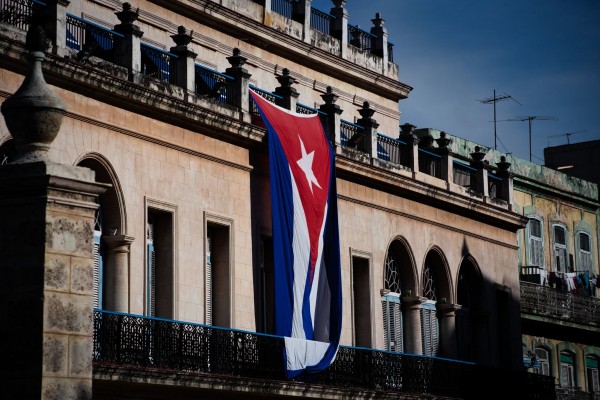Why seek closer economic ties with a US dictatorship?
Laxer: It’s time to recalibrate Canada’s place in the world

Donald Trump in 2019. Photo by Dana M. Clarke/Wikimedia Commons.
It’s hard to believe that the federal government plans to forge closer economic ties with the US when Donald Trump becomes president again. He’s said he will become dictator for a day. It will likely be for much longer.
Canada is not deepening economic ties with China, Russia, or North Korea. Should we do so with a Trump-run US if he acts like a dictator?
Trump’s second coming will likely be quite different than his first. He has a much better understanding of the system’s vulnerabilities, is appointing only yes-men and women, and says he will retaliate against adversaries. The Supreme Court granted him impunity. John Kelly, Trump’s former chief of staff, says he fits the definition of a fascist.
Although US guardrails are gone, Canada is trying the tired old “Team Canada” approach of telling Trump’s crew and Republican governors that US prosperity depends on economic ties with Canada. The problem is that their trade with us impacts them much less than ours with them. To a considerable degree, Trump’s election was based on his America-first, not North America-first, promise. Why would Trump care about economic damage to Canada? Let’s leave the Team Canada approach to hockey and soccer.
We have long assumed that the US would protect Canada from pressures by external autocrats. That assumption no longer holds. The Canadian government’s assessment of the dangers of dictatorships was unbelievably naïve in the past. After visiting Hitler in Berlin in 1937, Prime Minster Mackenzie King wrote that Hitler was a man of peace and a good friend to Canada. His naïveté vanished only after Germany invaded Poland and Canada declared war on Germany.
Is Canada’s current assessment of the dangers of a powerful foreign autocrat next door equally naïve? Why give a dictator the economic means to bully Canada into erasing democracy here? Wouldn’t it be better to loosen economic chains with the US, become economically more self-reliant and pursue closer ties with other democracies?
When trade with your main customer sours, you’re in deep trouble. Sure, we must maintain trade with the US, our biggest trade partner, but let’s move away from overdependence. Every economic dependency involves an exchange of power. Businesses recognize the danger of becoming too dependent on a single customer. The price is too high if your well-being depends too much on them. They gain too much power over you and lessen your ability to forge your own future. Better to minimize risk by diversifying your customer base. This adage applies to countries too.
Going into the North American Free Trade Agreement (NAFTA) was a strategic mistake for Canada. It may have seemed advantageous at the time, but it put most of our eggs in the US basket. We naïvely assumed that the US would remain a democracy and protect us. We now face the question of whether democracy can survive and thrive in Canada if the US becomes an outright dictatorship.
Trump’s tariffs will build walls against our exports to the US. That will force us to shift some of our focus away from the American market and towards trade with other countries. It will also encourage Canadian companies to sell more to Canadians. This is a good thing. Selling to foreigners is not inherently better than selling to Canadians.
After Brexit, the UK is seeking to deepen ties with those outside the European Union. Let’s revive Commonwealth connections with the UK, Australia and New Zealand, with whom we have cultural and affective ties. We should also forge closer ties with democracies in Western Europe and Latin America. NAFTA-partner Mexico is an obvious choice. Mexico’s new president, Claudia Scheinbaum, heads a progressive government that is retaking domestic control of their own economy. It’s a model for Canada.
The pandemic taught us the risk of relying on global supply chains. They are fragile and can be upset by political upheavals. Trump’s election upsets the apple cart. It’s time to recalibrate Canada’s place in the world. If we’ve lost one reliable friend, can we gain others? Will we take charge of our own economy so we can maintain democracy here?
Gordon Laxer is a political economist and professor emeritus at the University of Alberta.
This article originally appeared in the Edmonton Journal.










